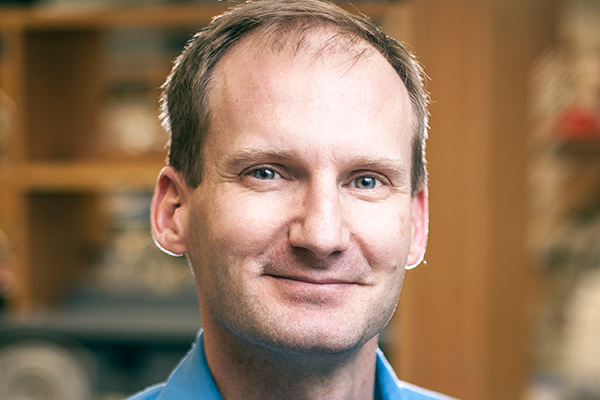Alumni Spotlight on David Cortez: There’s Always More to Learn

David Cortez, PhD, learned both large and small lessons during his time as a trainee in the Duke Department of Pharmacology and Cancer Biology (PCB). At the root of them all: the importance of asking questions and not being afraid to learn. He still draws on those lessons now in his current role as the Richard N. Armstrong PhD Chair for Innovation in Biochemistry at Vanderbilt University School of Medicine.
Cortez said while in the PCB PhD program, he came to learn that scientists should never trust a reagent or prior result that someone else had made. “I still find that asking how we could be wrong is a very powerful way of testing our ideas rigorously,” said Cortez, who also is associate director for basic science research at Vanderbilt-Ingram Cancer Center.
Even his qualifying exam and thesis defense at Duke had much to teach him. “I remember being asked very hard questions,” he said. “Some questions I couldn’t answer. I think that is critical — if you can answer all the questions, then you aren’t being asked the right ones. The important lesson is that there is always more to learn.”
Mentorship played an important role in Cortez’s journey to becoming a biochemist. His mentors at Duke, Ann Marie Pendergast, PhD, and Xiao-Fan Wang, PhD, were especially influential. Pendergast’s high energy and extensive knowledge of her field were particularly notable. “She read the literature more than anyone I knew,” he said.
Although Cortez didn’t work in Wang’s lab, Wang still served as a mentor who taught Cortez a great deal about how to manage a lab, and his approach to research was one to emulate.
The department’s chair at the time, Anthony Means, PhD, created a culture that was nurturing to trainees, Cortez said. Seminars were offered for students, and afterwards they had the opportunity to have lunch with the speakers. Cortez met his postdoc advisor during one of these lunches.
Cortez credits a comment that Means made in passing with being the reason he graduated early. Cortez often was the first person in the lab each morning, and his bench was visible from the hallway. After seeing Cortez sitting at his bench each morning for some time, one day Means stopped by and asked why he hadn’t graduated yet.
“I don’t think he knew that I was only entering my fourth year,” Cortez said. “I immediately went to Ann Marie and said, ‘Tony thinks I should graduate,’ and it worked. I was very happy to finish my PhD in four years. What I learned from this was that hard work does pay off.”
For current and future pharmacology and cancer biology trainees, Cortez offers advice that echoes many of the lessons he learned while at Duke.
“Being a scientist is a wonderful job,” he said. “Ask important questions and don’t be afraid to fail. There is no substitute for hard work. If you were training to be a world leading athlete, you would put in lots of hours because it was your passion. Science should be the same.”